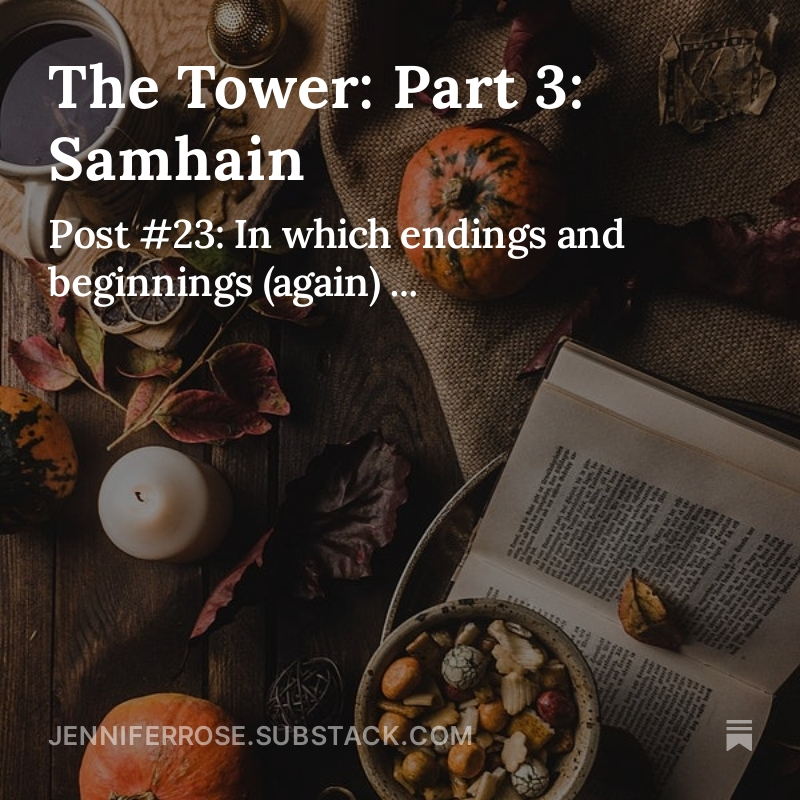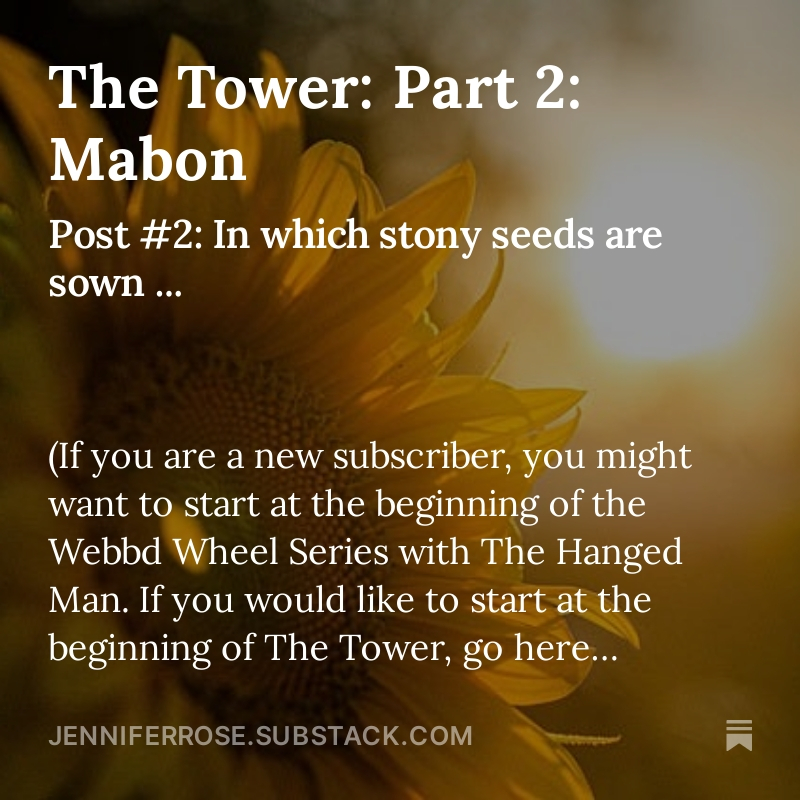by Jenny Rose | Jun 22, 2024 | Emotional Intelligence, Needs
In a recent conversation, someone asserted to me that ultimately everyone does what they want. I felt an immediate fury. That does not describe my life at all. I chewed on my outrage and resentment for a few weeks, simmering, until I decided to get over it and figure out why I was so hijacked.
I was immediately lost in the puckerbrush. Making choices about what we do and don’t do is intimately tied to needs and wants, and I have yet to be able to distinguish between the two once beyond the level of survival needs, or find any kind of clarity from someone else. Needs and wants are unpleasant territory I don’t want to explore. (See? There it is. I don’t want to. Yet I am, and I might need to.)

Photo by Bryan Minear on Unsplash
Then there’s the whole actions versus words aspect. People say they want things but don’t act accordingly. If we really want something, our behavior reflects it. If our behavior does not reflect our stated wants, we’re deceiving ourselves, or someone else, or both. I deeply distrust mixed messages. More unpleasant territory and old trauma.
Choice is in there, too. Choice is a big subject and a major theme in this blog. As I’ve mused on the statement ‘we all do what we want to do’ and made notes (you know I always make notes), I’ve wondered how we can compare a parent in some war-torn place attempting to keep their starving child alive another day with a wealthy person trying to decide if they want to fly their private plane to Paris for dinner or stay in and watch a movie in their in-home theater and have their chef prepare a seven-course meal. With wine, naturally.
One person has limited choices, all excruciating, to achieve continued survival for a few hours. The other has almost unlimited choices, all luxuries. How can I possibly compare the two? Can we say the parent trying to keep their child alive is doing what they want to do? Come on! Yet they do want to keep their child alive, right?
Perhaps it seems complicated and confusing because it’s complicated and confusing.
I wound up with a page full of notes, some sobering personal revelations, and a hairball.
On an internet search, I found articles pointing out the distinction between doing exactly what we want to do in any given moment (a toddler or a hedonist) and doing things we don’t want to do in service to an outcome we do want. That made sense to me.
If we focus on wanted outcomes rather than individual actions, we must have the ability to plan, look ahead, anticipate, and understand possible consequences of our actions. We also must attempt to predict the responses and reactions of the people around us to our actions, which means we have to understand something about emotional intelligence …

Photo by Manuel Sardo on Unsplash
… and now we’re back in the puckerbrush. I hate predictions. I don’t like leaps of faith. (I have a magnet on my fridge that says “Leap and the net will appear.” I don’t know why I keep it. It makes me mad every time I read it. Show me the warranty on that net. Show me the weight testing. Show me the damn net, in fact. Who will set it up when I leap? Are they paying attention or looking at their phone?) I trust my intuition, but I know I can be wrong. People are unpredictable. Life is unpredictable.
And yet we humans, including me, make choices all day long every day based on what we think will or might or could happen next. I’ve written about attachment to outcomes before. As I get older I’ve replaced a lot of my desired specific outcomes with simply wanting to know I did my best, regardless of outcomes. I may not like the outcome I get, but my integrity remains intact.
And then there are the people who don’t seem to understand actions and consequences in any kind of relationship. They choose what they choose in the moment and are hurt and/or outraged to discover the downstream consequences of that choice, especially in the context of many other choices. I observe this is a frequent divide along male/female lines. Women generally see everything as connected. Men generally see most things as discrete, in their own box. This is just one reason why I think “romantic” male/female relationships can be so devastating. We are often on different pages without knowing it.
If it’s true that we all do what we want in service to a desired outcome, what happens when my choices collide with yours? If you perceive me as blocking progress to your desired outcome you’re going to feel angry, and vice versa. We’re going to want each other to make different choices aligning with our personal desires. Most of the time, people won’t do that. We’re all attached to the outcomes we want.
A big piece of this for me is emotional labor, that hidden torrent winding through my life, sweeping away incalculable energy, time, and innocence. One of my priorities is healthy relationships. Close healthy relationships require time and attention; the ability to make choices for the good of the relationship rather than considering only our own wants and needs. This is an ongoing practice, not doing something we really don’t want to do once every six months and expecting applause. It means we have to face our own demons, learn to communicate clearly and honestly, negotiate, share power, and problem solve. It means boundaries and respect. It means reciprocity.
Having learned about reciprocity, I now prioritize my relationships to the degree the other does. I will not sign up to do all the emotional labor. I’m not interested in a close relationship like that. The price is too high. I’d rather put my energy into my relationship with myself. At least I appreciate my own efforts!
My conclusion about this ‘we all do what we want’ thing (gritted teeth – it still makes me mad), is it may be true if we consider our choices in the context of outcomes. I’ve made a lot of choices out of the clear knowledge that they were simply the right thing to do, too, choices that have been terrible for me, terrible in some of their consequences, yet ultimately still were the right thing for me to do. I had no outcome in mind. I don’t regret those kinds of choices, but they left permanent scars.

Photo by Cristian Newman on Unsplash
I want to blame others for all the time I’ve spent doing things I didn’t want to do, but it seems what we do and don’t do are entirely in our own hands, our own responsibility. Our lives are built on the choices we make, big and small, every hour of every day. If we don’t like our lives, we need to pay attention. Perhaps the useful question to ask ourselves if we hate what we’re doing at any given moment is, “Why am I doing this?” If we’re focused on a particular desired outcome, we may need to stop and think about whether our actions are effective in getting us there. Spending years of our lives desperately hoping and trying to reach an outcome and doing things we hate is not effective. I know this from personal experience. Our wants and needs change over time; what we once longed for may no longer be something we’re interested in. Sometimes we need to reality check ourselves. If we’ve been trying to get loved, for example, or please someone for a long period of time, it might be time to acknowledge our goal is not attainable or not worth attaining. Sometimes no matter how hard we work for an outcome it’s not achievable.
Then there’s the flip side: None of us do what we don’t want to do. That one is equally hard for me to swallow, but that’s a conversation for another day.
Questions:
- How much of each day do you spend doing things you don’t want to do? Why?
- What desired outcome(s) in your life requires you to do things you don’t want to do?
- Do you see your daily choices as isolated or part of a larger context attached to your wants and needs?
- Do you feel forced to labor emotionally? What would happen if you stopped?
- Who in your life reciprocates your level of emotional labor?
Leave a comment below!
To read my fiction, serially published free every week, go here: 
by Jenny Rose | Jan 20, 2024 | Emotional Intelligence, Feelings
(Due to a technical glitch, most of you were not notified when I last posted. You can follow this link to read the post if you missed it. I think the problem is fixed now!)
As so often happens, several threads came together to weave this post. The first was a suggestion from Seth Godin to follow our wandering mind, as that’s where our heart might be.
On first read, I smiled and thought “of course,” because following my imagination is one of my greatest pleasures.
As I considered it over a period of days, however, noting where my mind wanders, I discovered something.

Photo by John Salvino on Unsplash
I happily follow my wandering mind as long as I feel undisturbed about where it goes. The minute I start to get uncomfortable, however, I shackle it. Brutally. This might be with distraction, compulsive productivity, or starting to speed. A lot of people eat, overexercise, or get trapped in substance abuse. Let us count the ways!
I have rules about where my mind is allowed to go. I enforce my rules without mercy, in collaboration with draconian internal voices. My rigidity is not so much about my thoughts wandering as it is the feelings I have about my thoughts. This is emotional intelligence 101, and I’ve written about it before.
Thoughts and feelings are not the same thing.
In essence, then, I’m putting a lid on my feelings. Again. Still.
Sigh.
It doesn’t work. It never works, and I know this, but I do it anyway.
I do it for the same reason we all attempt to avoid painful feelings. They’re painful! Avoidance is easier than allowing ourselves to feel them, find healthy ways to express them, and let them go.
How many thoughts do we have in a day? I suspect most of us chew on the same preoccupations day after day, whether our thoughts engender feelings of rage, grief, fear, or shame, or a combination du jour. Uncomfortable territory. Also highly addictive territory. I’m chagrined to admit my own attraction to struggle. It’s so easy! Which is ridiculous, because it makes everything much, much harder than it needs to be, physically, emotionally, and generally.
Maybe what I mean is it’s so familiar!
As humans, we have an irresistible compulsion to notice, emphasize, and dwell upon the negative rather than the positive. That’s why so many people find relief in a gratitude practice, including me. Switching from a negative to positive focus requires mindfulness and mental effort, but the relief from anxiety and stress is immediate.
I should do it more often. Like ten times a day.
Understand, I’m not suggesting we avoid our feelings. I’m suggesting we take control of our thoughts, especially the negative kind. Feelings rise and fall inescapably. They’re biochemical messages from our physical bodies. We were made to have feelings. What we do with them, of course, is well within our control. Thoughts, however, are ours to steer.
Feelings, though arising naturally, are contagious and easily manipulated. That’s why advertising and social pressure work so well. Our feelings can be deliberately manufactured to serve those who would control our money, our votes, and our humanity.
On the other hand, this means we can to some degree manipulate our own feelings with our thoughts.
I came across an article by writer and speaker Rob Henderson, who I follow on Substack. He wrote a piece listing lessons he’s learned during a challenging life, beginning in the foster care system. One of the lessons is “you are what you do.” Not what you feel, but what you do.
I thought immediately of my writing community on Substack, where each of us struggles with what it means to be a writer. I don’t speak for anyone else, but I’ve called myself a writer ever since I began writing. Writers write. That’s what I do.
I like to keep things simple (even though I often don’t, which is a perfect example of what I say versus what I do!)

Photo by Alex Iby on Unsplash
We are what we do. I agree. We are not entirely defined by what we think and feel. I’ve known that ever since I went through emotional intelligence training. We’re also not defined by who we say we are, or who others say we are. We are not our highly polished and desperately maintained identity. Our true thoughts and feelings, the private stuff no one else can see or hear, steer our choices and actions, and those are what truly reveal our most authentic selves.
It follows if we want to change, we must do things differently. As many others have discovered long before me, true change comes from the inside out. If we manage our thoughts and feelings in healthy ways, our actions change. That’s why short-term strategies like diets often fail. A temporary diet does not address our broken relationship with food, a much harder proposition to tackle.
We seem to be on a giant rack, ever widening, between who we think we should be or must be and who we really are. The struggle and tension threaten to tear us apart, yet we cling to our rack, desperately holding ourselves together, too afraid to relax into who we really are and make peace with our true selves.
In a constant state of tension, we don’t let our minds wander. We can’t afford to. We don’t have access to the peace and quiet or even boredom a wandering mind requires. Our technology has erased the fertile ground of boredom, particularly for our children. We feed our hearts a diet of distraction, manufactured drama, busyness and productivity; a hunger for more, bigger, better, newer things, and expect it to be satisfied. We ignore or numb our feelings, or turn them into destruction of ourselves and others.
I often think of this Chinese proverb:
Tension is who you think you should be. Relaxation is who you are.
Toxic positivity is not an effective coping mechanism. Nor is a state of deep depression and withdrawal, as in addiction. I want to find a path between the two.
Perhaps my wandering mind knows the path and will point the way if I allow it to. Perhaps our minds know exactly where our hearts are but we’re too afraid to know.
Questions:
- When your mind wanders, where does it go?
- How do you feel about where your mind wanders?
- How do you think an inability to focus (distractibility) might in some cases be connected to a refusal to follow the guidance of mind and heart?
Leave a comment below!
To read my fiction, serially published free every week, go here: 
by Jenny Rose | Apr 16, 2022 | A Flourishing Woman, The Journey
In the online Red Cross Lifeguard Course, there’s a segment titled “When Things Don’t Go As Planned.” Every time I come across it, I smile.

Photo by NeONBRAND on Unsplash
Yes, indeedy. Because things often don’t go as planned.
Learning, in a real or virtual classroom, from text or videos or slideshows or YouTube, is necessarily simplified. The situations are controlled. Even the blood looks like cherry-flavored candy.
As a blogger, I ruminate, explore, define, proceed logically, and research. I’ve touched on so many different topics over the years here on Harvesting Stones. I’ve examined needs and boundaries, reciprocity and connection, contribution and authenticity.
However, this kind of intellectual exercise, learning at a remove, is not where the real mastery is.
The mastery comes when we put it all into action in real life. And real life is unbelievably messy. Real life is a loose cannon on a rolling deck. Real life does not go as planned.
We are occasionally plunged into chaos, into complicated experiences involving a lot of feelings and requiring all our skills. Our predictable routines and schedules turn inside out. We are not able to care for ourselves or anybody else as usual. We become exhausted. Our personal demons crawl out of our subconscious attics and cellars and play with us. Our physical weaknesses take advantage of our stress. We lose track of our power. We lose track of ourselves.

Photo by Quino Al on Unsplash
I would avoid such times if I could. I believe most of us would. Few people enjoy living in a maelstrom. The thing is, the maelstrom holds gifts, insights and growth we would never realize if we always lived serene, well-controlled lives.
I’m writing this on Wednesday morning. A week ago today, less than 24 hours before closing on the house we’re selling and the house we’re buying, closing was cancelled. Well, “extended.” I’m not sure there’s a difference, but my hope is pretty frayed right now, so I’m inclined to be pessimistic.
I thought I had been living in chaos before that abrupt last-minute change of plans, but those far-off days seem like a cake walk compared to what the last seven days have been like for me.
When our lives fall apart in painful ways, part of the stress of it is the rest of the world goes right on without giving us space and time to process, remember our resilience, and get back on our feet. I still needed to figure out how to get the car in to get the studded snows changed. I still have bills to pay. I still have a job. I still need to search the stores for cat food. I still have family birthdays to remember. The bed still needs to be made, the dishes washed, the laundry done. I want to remain consistent in my writing.
Autoimmune disease is highly opportunistic. I have not had this amount of stress since I moved to Maine seven years ago, and within a few hours of the cancelled closings my back went into spasm, which means I need all the love, rest, and care I can give myself right now, in the middle of the shit show. My body would feel better if we could close and get this move over with. And I can’t possibly move with this level of pain.
Meanwhile, the world turns. I feel guilty about my struggle when I know people in Ukraine are losing their homes, lives, loved ones, and perhaps their country. I tell myself I’m being dramatic, I’m whining, I never deserved for things to work out in the first place, etc., etc.
I told you about the personal demons crawling out, right?
So what do we do during times like these? How do we get through them? How do I turn the concepts of letting go, courage, detachment from outcomes, and emotional intelligence into tools to help myself? It’s all so clear, logical, and neat on the page/screen. I believe every word I write. It’s all organized and categorized.
When things don’t go as planned, nothing is neat, organized, or categorized. We can’t think well. Our feelings sweep us from fear to fury to despair and back again.
In my old dance group, we used to say when you feel overwhelmed, dance small.
Dance. Small.
Dancing small is focusing on breathing in and out. It’s making small movements. It’s wrapping your arms around yourself, facing a wall or a corner, closing your eyes, and concentrating on the floor under your feet. It’s deliberately sinking into yourself and letting everything and everyone else go as best you can. It might be the healing release of tears.

Photo by Leon Liu on Unsplash
This strategy doesn’t make the chaos go away, but it does give us a small resting place within the chaos. It allows us to find and hold onto ourselves. It gives us a tiny bit of power. It allows a little space for rational thought, for us to remind ourselves of what’s true:
- Nothing stays the same; all things pass
- Things invariably work out somehow, some way
- There is always much to be grateful for
- We are allowed to have feelings about our experience, and they’re allowed to be messy
- We always have some choice
- None of it is personal
This week, though in many ways painful and difficult, has also provided me with valuable practical experience in using some of my newer skills. It’s given me a chance to stay in my own power, always a worthy practice. I’ve had an epiphany about a longstanding destructive pattern in my relationships which has emotionally freed me in significant ways. Paradoxically, the current chaos has brought me clarity.
I’ve also been touched and humbled by the support I’ve received from friends and other members of my community. I am not alone.
Most of all, it’s given me a chance to deal with my feelings. It occurs to me the word “stress” is misleading. I don’t need to deal with my stress. My feelings need attention. They need to be named, welcomed, fully experienced, and released, no matter if they’re in my head, heart, or back. Managing my feelings will take care of my stress and my physical discomfort.
By the time you read this, things will have changed. Perhaps we’ll have a new closing date. Perhaps I’ll have decided to make a different plan. Perhaps we’ll still be in limbo, but it will be a different day in limbo. Today, we’ve taken my car in to get the tires changed, so that’s something taken care of. At some point, the muscles in my back will unclench and I’ll move freely again and be able to resume exercise.
Meanwhile, frogs boom, chuckle, and peep in the pond. The birds are busy and the spring dawn chorus gladdens each morning. The phoebe has returned and hunts from the barn roof. Rain falls and the sun shines. The mud is gradually drying up. I will feed the cats, play with them, clean their boxes. I’ll go to work, teach swim lessons, wipe down the locker rooms, read the pool chemicals, guard lives, answer the phone. I’ll feed myself, drink cups of tea, rest, write, read, and sleep. Time will pass. Days will pass.
It will all pass, the things that go as planned, and the things that don’t.

Photo by henry fournier on Unsplash
by Jenny Rose | May 4, 2017 | Choice, Power
Last Friday I resigned from my medical transcription job. Shortly after emailing my letter of resignation to my supervisor, she called me, wanting to know why.
I told her the truth. I don’t feel as though my contribution matters. I don’t like the company culture of perfectionism and high stress. I don’t feel valued as an employee, and my skills and talents are worth more than I’m receiving.

Photo by rawpixel.com on Unsplash
We parted in a friendly manner. She assured me I was eligible for re-hire any time and wished me well. I wished her and the rest of the team well. Cyber handshakes and smiles all around.
I’m in the middle of selling a property back in Colorado. I currently have wonderful renters in the house. They’ve been honest, cooperative, open and have done every single thing they’ve said they would do. They’ve become friends. I’m faxing paperwork, including the lease with these tenants, to Colorado and working with my Colorado real estate agent long distance. The agent expressed surprise that our rental agreement didn’t contain language about punitive consequences if the tenants suddenly decided to break the lease and leave.
It never entered my head to limit my tenants’ choice to leave if they were unhappy. Obviously, at least one property professional feels this is inappropriate business practice, but why would I want to force two people whom I respect and like to stay in a situation that wasn’t working for them?
Answer: I wouldn’t want to, I didn’t want to and I don’t want to.
Last evening I had a long conversation with one of my sons, and among the things we talked about was the idea of noticing how things are within ourselves and the choices we make about our own unhappiness and discomfort.
This morning, as I fried bacon and sausage and worked in the kitchen, I was thinking about this week’s post, trying to come up with something I wanted to write about from my current experience, and suddenly all these interactions lined up in my head (Clunk! Clunk! Clunk!) and I thought, well, there it is. I want to write about quitting.
What do you think of when you think of quitting?

Photo by Milada Vigerova on Unsplash
I think of the word “should,” as in should quit smoking, should quit drinking, should quit eating so much sugar, should quit fill-in-the-blank. These are the kind of circumstances under which quitting is supported and validated, but the “should” is an instrument of shame, guilt and fear, as well as a thoroughly ineffective motivator.
I was taught being a quitter or a dropper outer is a desperately mortifying thing. Quitting is associated with betrayal, abandonment, failure, letting others down and weakness.
Quitting is often an act of aggression. It’s what we do when we’ve hung on by our fingernails until they’ve torn out, one by one, and we have to let go or die. It’s hitting bottom. It’s burnout, breakdown and nothing left to lose, often accompanied by scenes, meltdowns and an exchange of insults.
Quitting is selfish and irresponsible. Choosing to be happy is an embarrassing thing to admit. We’re told If everyone did what made them happy, everything would unravel. Nobody would work. Important things wouldn’t get done. The economy would collapse.
There are cultural consequences for quitting. The label “quitter” impairs our ability to get hired, find stable relationships or make financial choices. A quitter is unreliable and untrustworthy at best. Someone who quits their marriage, family or children is so despicable as to be unforgiveable in some cases.
The word quit, according to a quick search, means to leave a place, resign from a job or stop or discontinue an activity. In short, it’s a word that defines a choice. Interestingly, one of its origins is Middle English, in which it means “set free.”
Set free sounds a lot more positive than quitting, doesn’t it?
It occurs to me that the whole idea of quitting is rooted in power. To quit is to stop. How is it that the culture is so unfriendly and unsupportive, for the most part, of making a choice to stop? Why are we so consistently and pervasively discouraged from saying no, from quitting, from changing?
I’ve written before about the yes and the no. To be in our full power, both consent and dissent have to be available to us. We have to be able to make a real choice. The inability to freely choose points to a power-over situation, and it doesn’t matter if it’s work related, relationship related, addiction related or some internal limitation like fear. Something or someone is interfering with our power to freely choose if we can’t make a choice to quit.
Said a different way, the problem is not so much the addictive substance, the miserable job, the narcissistic family member or the abusive romantic relationship. The problem is we’ve been systematically amputated from our full power to choose.
Sadly, this is a consequence, at least in part, of our current educational system in the United States. It doesn’t work for a lot of kids. It didn’t work for me. It didn’t work for my kids. I told my sons the same thing I was taught when they complained. Education is important. Everyone has to go to school. It’s the law. We all have to do things we don’t want to. Being happy doesn’t matter.
Ugh. I wish I hadn’t believed that. I wish I hadn’t said it, and more than anything I wish I’d listened to their distress and taught them to respond to it appropriately by responding to it appropriately myself. At the time, all I had was what I’d been taught, and I’m absolutely certain my own mother taught me the only thing she knew as well.

Photo by Gemma Evans on Unsplash
The point is few of us learn how to respond to our discomfort or unhappiness, either by expressing it appropriately or taking action to help ourselves. Public education certainly doesn’t teach it. The way we work in this country doesn’t support it. Patriarchy in general doesn’t validate self-reflection, honest communication, or simply saying, “No more. This isn’t working for me. I’m stopping. I’m quitting.”
On the other hand, we’re great at demanding and commanding, as in “You should … You will … You must … You have to …” However, living in a cage of internalized and externalized shoulds is more power-over. When the shoulds have our power, we’re not free to choose. I know, because that’s how I’ve lived most of my life.
One of the hallmarks of power-over is its resistance to change. Change threatens the status quo. Traditional marriage vows are forever, no matter what. Many jobs reward length of service. We’re encouraged to grow up, settle down, get a stable life. Loyalty, dependability, reliability and predictability are all rooted in not changing.
But we do change. Our bodies change. Our needs and desires change. We learn new information. The things that captivate and delight us change. The best of us learn, grow, question, seek new experience, dance elegantly with challenge and tension, and develop a healthy relationship with being wrong. The best of us spend a lifetime making friends with our changing selves, investigating our motivations, our patterns, our behaviors and beliefs, our weaknesses and strengths, and doing battle with our fears and demons.
A relationship, job, priority or place may be a perfect fit at some point in our lives, and then be outgrown. A coping mechanism or response may work very well, even save our lives at one time, and cripple us at another. Life is always changing. The ability to flow with change, to welcome it and play with it, responding with free choice after free choice, defines a well-lived, powerful, elegant life
Quitting, like boredom, has a bad reputation. I suspect this is mostly due to a cultural smear campaign. My son is in his 20s, and as he shared parts of his experience with me, I realized we’ve arrived at the same place, he’s just 30 years ahead of his late-blooming mother. He’s reclaiming his power to respond to his own discomfort and distress and choose what to do, based on prior choices and how they worked out. He’s not waiting until he can no longer bear his unhappiness. He’s not quitting in a blaze of hand grenades and gunfire. He’s not self-destructing. He’s allowing himself to stop, to change, to leave. He’s setting himself free of what doesn’t work for him, and he’s doing it without guilt or shame or the need for outside validation.
Quitting is an art. I can be done with respect, gratitude and dignity. It can be a gift of love and authenticity to self and others. The right person for a job, place or activity is not someone who hates the job, place or activity. The right job, place or activity for us is not the one that makes us unhappy. Commitment, responsibility and keeping our word are all important things, but not unto death. Not unto madness and broken-down health. We are allowed to set ourselves free. We are allowed to change. We are allowed to learn. We are allowed to try and fail and move on.
I began this project of blogging with a letter of resignation. This week I sent another letter of resignation. In both cases, I hung on long after I knew I was miserable because I was afraid to make a change. I have more work to do in building trust with myself, but I’ve made a start.
I quit. My daily crime.
All content on this site ©2017
Jennifer Rose
except where otherwise noted












